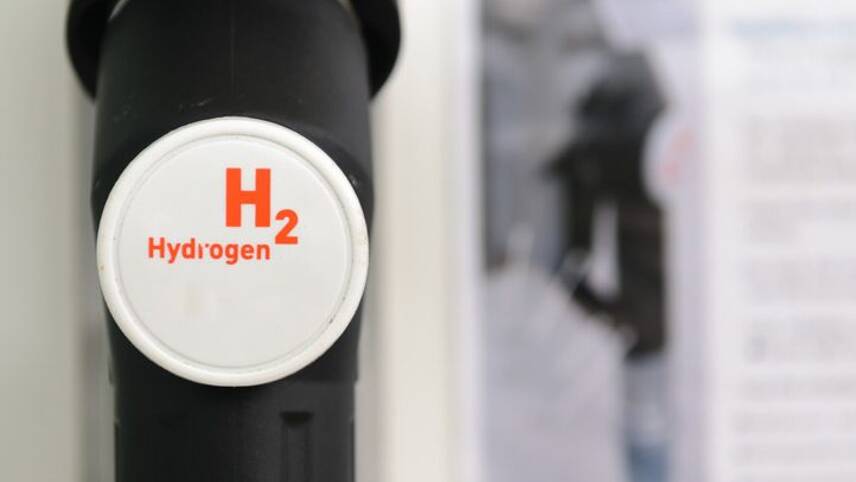Register for free and continue reading
Join our growing army of changemakers and get unlimited access to our premium content

Climate change has never been higher up the agenda with the UK committing to becoming the first major economy to reach “net zero” emissions by 2050. While this is an ambitious task, significant changes are already happening. We have legally binding targets in place to reduce emissions, under the 2008 Climate Change Act, and major strides have been made in zero-emission technologies such as wind and solar.
Reaching net zero will require innovation and collaboration if we are to deliver. One of the biggest challenges we face is how we can decarbonise our energy systems, and that’s where hydrogen comes in.
Hydrogen is the most abundant chemical element in the universe. Unlike natural gas, when pure hydrogen is combined with oxygen and burned it produces no harmful CO2 emissions, only heat and water. Hydrogen could provide clean energy for our homes, businesses and transport networks. Providing the hydrogen produced is from low carbon sources, or the carbon emissions created from it captured, hydrogen could help eliminate the largest sources of carbon dioxide emissions in the UK.
Hydrogen is a critical part of the future energy mix. It can be safely stored (and so meet variable demand) and it can be piped to homes and businesses by repurposing existing infrastructure. But this is by no means simple. Existing domestic appliances can safely use up to 20% hydrogen, but for full conversion, new appliances will be needed. A new safety case equivalent to that in place for today’s gas supply will need to be developed and approved by the Health and Safety Executive.
For hydrogen to significantly contribute to net zero carbon, several interrelated issues must align including development of supply and demand side technologies, connecting infrastructure, regulatory and legal frameworks and the creation of an investible proposition. All underpinned by society embracing decarbonised energy through ‘social acceptance’ of conversion to hydrogen. However, the UK has been through other such energy revolutions including the transition from town gas (which ironically contained 50% hydrogen) to North Sea Gas in the 1960’s and 70’s.
In the long term, we expect all hydrogen to be renewable, or ‘green’. However, the cost of this remains relatively high, and there isn’t enough electricity to produce anything like the quantity of hydrogen we will need. In the short term, ‘blue’ hydrogen (produced from ‘cleaning up’ natural gas using a process called reforming) will be necessary as it can be deployed rapidly and at scale. This will allow the hydrogen transmission and distribution infrastructure to be built, and the supply chain to be developed, to allow the future blending in of ‘green’ hydrogen.
The North West has all the elements to be the UK’s first hydrogen economy, with energy intensive industry, a skilled workforce, engaged academia, and collaborating city regions. We are home to HyNet the most advanced hydrogen and carbon capture, utilisation and storage (CCUS) project in the UK which could see hydrogen blended into the gas grid and piped into homes and businesses by 2024. Carbon captured from the reforming process will be stored in disused gas reservoirs in the Liverpool Bay, largely using re-purposed, low cost infrastructure. We also have salt caverns in Cheshire which could be utilised to store hydrogen to help manage demand.
The good news is that these changes also present exciting business opportunities to those who act first and embrace the new paradigm. The substantial investments in clean technology will bring new jobs and demand for skills, especially in our industrial heartlands. The North West has committed to becoming the UK’s first low carbon industrial cluster by 2030, which it is estimated could deliver 33,000 jobs and over £4bn investment, while saving 10 million tonnes of carbon per year.
To achieve net zero by 2050, hydrogen needs to play a major role. In fact, it’s hard to see how we can get there without it. Realising this huge opportunity will require Government assistance in the development of early stage projects; demand side initiatives to encourage societal acceptance; and industrial transformation incentives; amongst other things. But, the opportunity for business is huge, we have the chance to lead the charge on decarbonising energy and in doing so offer a replicable and exportable set of skills and technologies to the rest of the world.
Professor Joe Howe, chair of the North West Hydrogen Alliance (NWHA)


CO2 is not harmful nor is it a pollutant. It is the gas of life. It powers everything we do thanks to its essential role in photosynthesis.
Hydrogen is an energy waste. It takes twice as much energy to create it (by reforming CH4, itself a waste, or by electrolysis of water, itself presenting potential environmental disasters) than you get back by burning it. And water vapour is the biggest Greenhouse Gas by volume and effect.
It is not the green panacea that everyone makes out